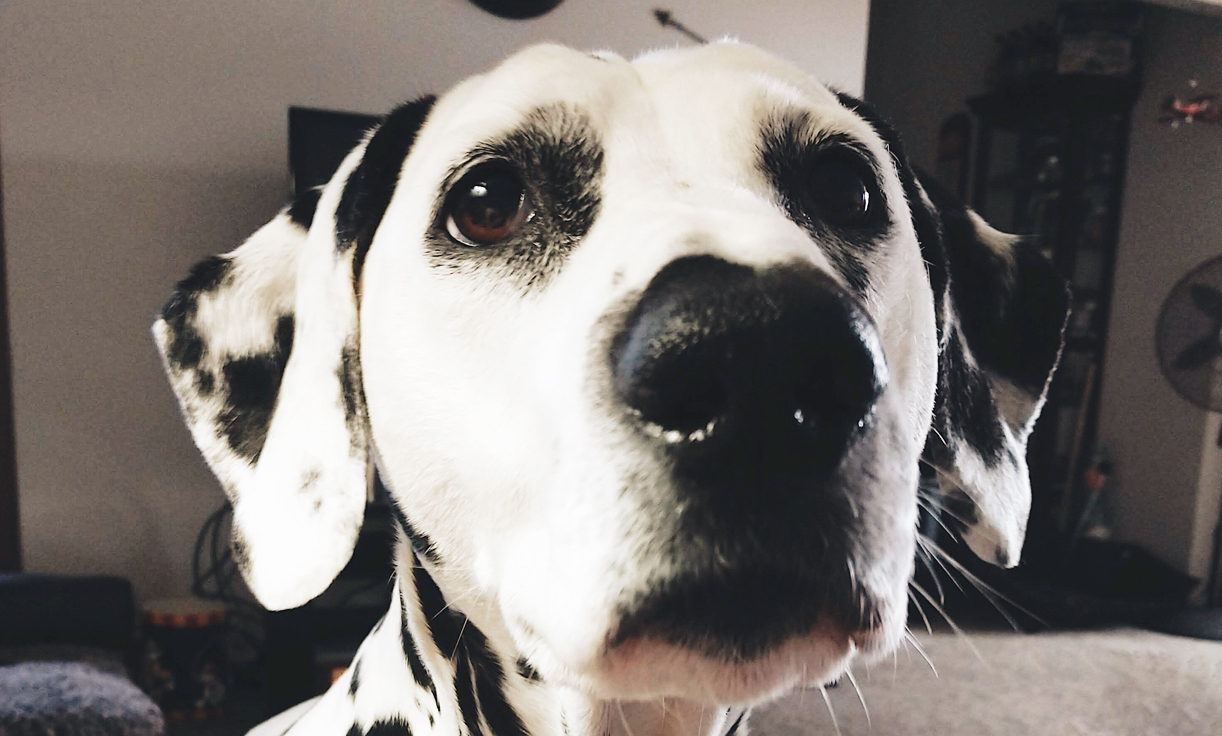Puppyhood is a special time —and not just because of the ridiculous cuteness on display. It’s also when they’re doing the most growing, so much so that you can almost see them change from day-to-day. It should be no surprise then that their nutrition at this stage is critical.
Ensuring that they get adequate nourishment during this crucial developmental window gives them a foundation of good health which can set them on the right track now, and for years to come. But when it comes to puppy health, you can’t believe everything you hear.
Just like in the world of human nutrition, dog food trends, fads, urban legends, and simple misunderstandings are common. Let’s bust five of the most common myths about puppy food.
Myth 1: Puppies can eat anything
Puppies are not only in an important developmental window with regards to their physical wellbeing, but also in terms of when they’re absorbing the most information about their world.
This means that not only is the food you choose to feed them incredibly important, but also the habits you teach them around food. A dog who grows up on unhealthy food and table scraps scored by begging can easily develop illnesses and food sensitivities — to say nothing of bad habits.
Set good standards from a young age by providing them with a complete and balanced diet. Look for a food with all vitamins and minerals they need to thrive, and limit their treats, scraps, and human food to establish healthy attitudes around food that will last them a lifetime. Additionally, choosing a complete and balanced fresh food that’s simply cooked rather than harshly processed, and free from the toxins that studies have found regularly plague kibble and canned foods, will ensure your puppy isn’t eating something that could cause them significant health issues later in life.
Take the time to teach them proper feeding manners from a young age, and your puppy will know to rely upon their own bowl for the vast majority of their nourishment, rather than begging for handouts. And with a complete and balanced fresh food, you can be assured they’ll receive everything they should be getting—and nothing they shouldn’t.
Myth 2: Nutritional supplements are a no-brainer
When it comes to vitamins and supplements, it’s tempting — and almost seems logical — to think that more is better. If your puppy eats too much of a certain nutrient, it’ll just be flushed out, right?
This can actually be a very dangerous misconception. It’s entirely possible for a puppy to eat excessive amounts of micronutrients like calcium, phosphorus, and vitamin D. Doing so can result in buildup, leading to serious illnesses, including lifelong bone and joint conditions. In other words, your puppy can certainly have too much of a good thing, when that good thing is nutritional supplements—and starting them young only gives more opportunity for an excessive buildup.
The solution, of course, is to work closely with your veterinarian if you’re thinking of giving your puppy supplements. But bear in mind that you shouldn’t need supplements to complete your puppy’s diet. If they’re eating balanced, fresh dog food, they’ll be getting everything they need from their daily diet.
Myth 3: Puppies should be grain-free
Some people are strong advocates for the idea that dogs should eat a pure meat diet. Grains, they say, would never be eaten by dogs in a natural environment, therefore they simply aren’t good for your puppy’s health.
In truth, dogs have been living alongside humans for millennia, and have likely evolved to eat what we eat. This includes all kinds of plant foods: Fruits, vegetables, wheat, and rice, to name just a few. For modern dogs, grains can be a healthy part of an everyday diet. They provide fiber, carbohydrates, and protein that can help your puppy thrive, and they’re part of countless veterinarian-approved dog food recipes.
The only caveat is that in order to provide all those benefits, they should be prepared fresh, and not heavily processed. Often, heavily processed grains in dry dog foods are simply there as starchy, stabilizing fillers. Their presence isn’t the issue; it’s that they’re empty calories that offer no nourishment to your pup.
While a grain-free diet may be right for certain dogs — those with very particular digestive and health circumstances — it’s certainly not the ideal default diet for every pup.
You may have read news articles about the link between a canine heart condition called DCM and so-called “grain-free” foods. The truth is that DCM is a complicated condition that may be caused by many factors. Recent studies show that there is no definitive link between specifically grain-free diets and DCM. If you’re interested in learning more, read our story on DCM and diet.

Myth 4: The best treats for puppies are puppy treats
While saying that the best treat for a puppy is quality time with you might inspire eye rolls, it’s a serious point that there’s no need to shell out big bucks on puppy treats.
Love from you is all the affection puppies strictly need, but if you do want to reward them with some snacks every now and again, they don’t have to be anything particularly special. You’ll likely even be able to find some already in your kitchen!
Crunchy, sweet snacks like carrots, watermelon, peppers, and even ice cubes — among many others — are beloved by dogs everywhere, and these fresh snacks boast far more benefits than the specialty tidbits you can pick up at the store.
Nonetheless, regardless of what edible snacks you’re doling out, make sure they’re a balanced part of your pup’s diet; they should comprise no more than 10% of your dog’s daily calories. Too many treats of any kind can be unhealthy if your pup is already getting enough calories and nourishment from their regular meals — but if they’re fresh, and fruit or veg-based, they’ll be deliciously low-calorie, low-concern, and highly enjoyable.
Myth 5: High-quality puppy food will cost you a fortune
When compared to the standard bulk bags of kibble with its endless shelf life, higher quality food—or that which more closely resembles actual food—can seem unpalatably pricier. And if your dog’s content with the status quo, why mess with it?
First, the status quo desperately needs re-evaluating. The list of issues with kibble, canned, and heavily-processed food is long; ranging from shady marketing tactics, labeling tricks, and poor regulatory oversight; to undeclared ingredients, toxic substances, and even carcinogens. And dogs are given this highly processed “food” for every meal of their lives.
Fresh food, made of high quality meat sourced from USDA-certified farms and whole vegetables, is cooked much more gently, so it maintains significantly more of its nutritional value by the time it reaches your dog’s bowl. That it is cooked also makes it safer than many raw options, which have their own set of concerns. Plenty of fresh brands even offer pre-portioned meals that are delivered to you for convenience.
Second, an investment in your dog’s overall health from the start is one that will pay off further down the line. The alternative can end up being a much more costly and heartbreaking outlay. Remember the old cliche “an ounce of prevention is worth a pound of cure”? Buying the best food is an investment in your beloved pup’s long-term health that pays for itself in spades, and will save on vet bills later in life.
Puppyhood is one of the most exciting periods of dog ownership, and making sure from the start that they’re getting everything they need — and nothing they shouldn’t — from their food shouldn’t be an arduous task. There’s a lot of misinformation floating around too, which doesn’t make things easier, but between the knowledge that a fresh diet is all that dogs really need to thrive and a little common sense, you should be able to spend less time worrying about their nutrition and more time enjoying every second of those adorable puppy stages!




